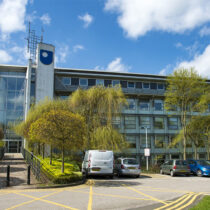The call for papers for our EAA conference session “Out of neglect, into the spotlight. Strategies and good practices for rediscovering sites with troubled histories”, organised by Elisa Pizzuti, Flavia Palazzini, Dario Monti, Anita Casarotto and myself is now officially open. This year’s meeting of the European Association of Archaeologists will take place in Rome, 28th-31st August.
For more information, see: https://submissions.e-a-a.org/eaa2024/sessions/overview/preview.php?id=1043 or contact us by personal email.
Here is the abstract for our session:
Countless archaeological sites worldwide suffer from neglect or a lack of study, yet the reasons behind this oversight are rarely related to their significance or informative potential. The urgency to rediscover these contexts is heightened by the possibility that they may have already experienced, or are at risk of:
– damage (e.g. complete or partial obliteration caused by factors such as increasing urbanization and construction projects; limited access and possible loss of integrity due to conflicts and political instability);
– data loss (e.g. absence of thorough research owing to academic biases or a lack of stakeholder commitment; artifacts and documentation dispersal in the post-investigation phases).
Frequently, the chance of conducting new fieldwork in these contexts is hindered by a shortage of funds or inaccessibility, and the opportunity to get fresh information lies solely in the analysis of data from past research. However, scholars engaged in this recovery may face several challenges. Issues like the scarcity of up-to-date or complete documentation and the difficulty of working with data frequently not collected by modern standards add a layer of complexity to the work. Nevertheless, the result is worth the effort. The retrieval aids in gaining a better insight into the sites and often starts a virtuous cycle, fostering awareness, creating a shared narrative for community identity, and leading to collaboration among institutions and local entities to ensure preservation. For instance, digital online portals for data sharing and citizen science could be a powerful tool in changing the current situation, improving territorial monitoring and safeguarding of cultural resources.
We welcome papers that share first-hand experiences in addressing “neglected sites” with troubled histories, without specific geographic or chronological constraints. The session aims to discuss best practices for managing recovery challenges and preserving these sites for the benefit of future society.
Organisers:
Elisa Pizzuti (Roma Sapienza): [email protected]
Flavia Palazzini (Roma Sapienza/KNIR): [email protected]
Isabella Bossolino (ULB): [email protected]
Dario Monti (UCLouvain): [email protected]
Anita Casarotto (Groningen/KNIR): [email protected]
If you are interested in giving a paper at the session (20 minutes), please submit an abstract of 150–200 words via the EAA 2024 website: https://submissions.e-a-a.org/eaa2024/
The deadline for submitting or modifying an abstract is 8 February 2024, 23:59 CET.





